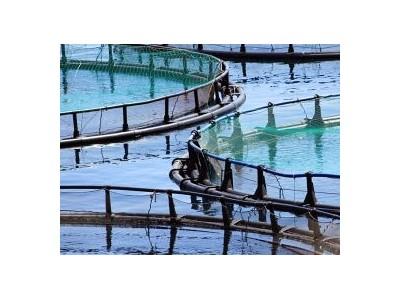Aquaculture Producers Express Concern Over Dumping Proposal in Donegal Bay

IRELAND - Aquaculture producers and members of the Irish Farmers Association (IFA) have expressed serious concerns with a proposal published in December by the Department of Agriculture, Food and the Marine to apply to the EPA for a licence to dump almost 100,000 tonnes of fine peaty silt in Donegal bay, threatening the health of millions of fish and shellfish farmed along the Donegal and Sligo coastline.
Executive of IFA Aquaculture, Richie Flynn said that producers had voiced serious concerns: “We are all in favour of coastal economic development and the extension of facilities in Killybegs which require dredging, but the consequences of the Department’s proposals to dump the spoil in a site which was previously associated with fish kills would outweigh the benefits by ruining the livelihoods of oyster, mussel and salmon farmers in the bay.
“The site is too close to our members, too close to Natura 2000 sites and the level of monitoring proposed is totally inadequate, given the scale of the potential losses involved. The models used for dispersion are out of date and most significantly the peaty nature of the silt has not been taken into account. This material will drift and spread throughout the bay, potentially causing damage to up to €50 million of our stocks and threatening 150 jobs.”
Richie Flynn said the EPA must find an alternative site far away from any aquaculture or fishing grounds.
“The proposed site was the subject of a report which could not show definitively that dumping spoil in that area was not responsible for the death of 2 million fish in 2003. To return to this site now to re-commence dumping is highly irresponsible, especially with such volatile material. The industry requires security in terms of dumping that any material will be washed westwards into the Atlantic by way of brand new modelling. It is also very important that monitoring of the operations at the dredge site, on board ship and at the dump site are carried out independently to ensure no toxic material is carried out into the bay and that all dumping occurs exactly where it can do no harm.”
Có thể bạn quan tâm
 New Disease Detected in Vannamei Shrimps
New Disease Detected in Vannamei Shrimps A new virus among Vannamei shrimps, in Thailand and Vietnam, has been detected by the department of Marine Living Resources of Andhra University
 Hopes Are High for Torula Yeast in Shrimp Aquaculture
Hopes Are High for Torula Yeast in Shrimp Aquaculture Research in Mexico has shown that torula yeast (Candida utilis) could replace portions of fishmeal in farmed Pacific white shrimp (Litopenaeus vannamei) diets.
 Women are Central to the Global Fishing Industry, Study Finds
Women are Central to the Global Fishing Industry, Study Finds Although women play a central role in the fishing industry in many parts of the world, their contribution has not been sufficiently recognised